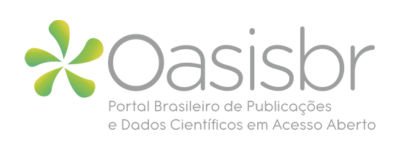The impacts caused on the gut microbiota by the intake of breast milk or formula on infant immunity.
Visualizações: 465DOI:
https://doi.org/10.56579/rei.v6i2.1193Keywords:
microbiota, breast-feeding, intestine, immunity, infantAbstract
The study aimed to investigate how breast milk influences the infant's intestinal microbiota and highlight its role in the development of the human immune system. The PICO approach was used to formulate the question and the research covered the last 10 years of the MEDLINE/Pubmed and VHL databases. Of the 76 articles identified after screening, 8 met the inclusion criteria, being free, original and written in English or Portuguese. The study showed that oligosaccharides in breast milk influence the growth of beneficial intestinal bacterial colonies, such as Staphylococcus and Bifidobacterium spp. The initial colonization of the intestine of breastfed infants is characterized by the predominant presence of Bifidobacterium, Eubacterium, Clostridium, Bacteroides and Lactobacillus. The results highlighted that breastfeeding strengthens the immune system, reducing morbidity and mortality from infections, in addition to reducing systemic inflammation. Thus, breastfeeding has a positive impact on long-term health, strengthening the immune system and reducing incidences of infections, chronic and metabolic diseases. Although interventions such as BMOS and probiotics also demonstrate benefits, breast milk is preferable for establishing lasting patterns in infant health. The method of birth and the use of formula have also been identified as influencing immune development.
Downloads
References
HENRICK, B. M. et al. Bifidobacteria-mediated immune system imprinting early in life. Cell, v. 184, n. 15, p. 3884-3898.e11, jul. 2021. DOI: https://doi.org/10.1016/j.cell.2021.05.030
BIAGI, E. et al. The Bacterial Ecosystem of Mother’s Milk and Infant’s Mouth and Gut. Frontiers in Microbiology, v. 8, 30 jun. 2017. DOI: https://doi.org/10.3389/fmicb.2017.01214
GONZALEZ, E. et al. Distinct Changes Occur in the Human Breast Milk Microbiome Between Early and Established Lactation in Breastfeeding Guatemalan Mothers. Frontiers in Microbiology, v. 12, p. 557180, 2021. DOI: https://doi.org/10.3389/fmicb.2021.557180
SOLAURI, E. et al. Early-Life Nutrition and Microbiome Development. Nestlé Nutrition Institute Workshop Series, p. 151–162, 2019. DOI: https://doi.org/10.1159/000490302
CHIN, N. et al. Transient Effect of Infant Formula Supplementation on the Intestinal Microbiota. Nutrients, v. 13, n. 3, p. 807, 1 mar. 2021. DOI: https://doi.org/10.3390/nu13030807
THOMPSON, A. L. et al. Milk- and solid-feeding practices and daycare attendance are associated with differences in bacterial diversity, predominant communities, and metabolic and immune function of the infant gut microbiome. Frontiers in Cellular and Infection Microbiology, v. 5, 5 fev. 2015. DOI: https://doi.org/10.3389/fcimb.2015.00003
SUÁREZ, L. et al. Amine variations in faecal content in the first weeks of life of newborns in relation to breast-feeding or infant formulas. The British Journal of Nutrition, v. 122, n. 10, p. 1130–1141, 28 nov. 2019. DOI: https://doi.org/10.1017/S0007114519001879
RADKE, M. et al. Starter formula enriched in prebiotics and probiotics ensures normal growth of infants and promotes gut health: a randomized clinical trial. Pediatric Research, v. 81, n. 4, p. 622–631, 21 dez. 2016. DOI: https://doi.org/10.1038/pr.2016.270
Downloads
Published
How to Cite
Issue
Section
License
Copyright (c) 2024 Interdisciplinary Studies Journal

This work is licensed under a Creative Commons Attribution 4.0 International License.
The Journal of Interdisciplinary Studies adopts the Creative Commons Attribution 4.0 International License (CC BY 4.0), which allows for sharing and adapting the work, including for commercial purposes, provided proper attribution is given and the original publication in this journal is acknowledged.













